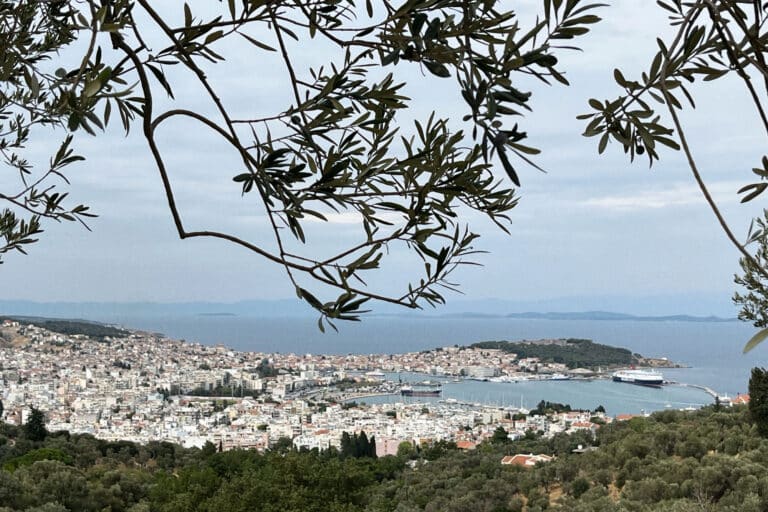CPTnet
9 June 2017
INDIGENOUS
PEOPLES SOLIDARITY. Spirited Reflection: Pilgrimage for Indigenous Rights.
by Esther Townshend
But this is the covenant that I will make with the
house of Israel after those days, says the Lord: I will put my law within them,
and I will write it on their hearts; and I will be their God, and they shall be
my people. – Jer. 31: 33
Earlier this
month, I joined a group walking from Kitchener-Waterloo to Ottawa, called the
Pilgrimage for Indigenous Rights. Organized by Mennonite Church Canada –
Indigenous-Settler Relations and Christian Peacemaker Teams – Indigenous
Peoples Solidarity, the pilgrimage had two primary goals: to visit churches to foster
conversations about the United Nations Declaration of the Rights of Indigenous
Peoples (UNDRIP) and its role as a framework for reconciliation; and to call on
the Canadian government to fulfill its promise to implement UNDRIP. In particular,
we walked in support of Bill C-262, a private member’s bill by MP Romeo Saganash
that provides a legislative framework for UNDRIP’s implementation. Canada’s
Liberal government has been conspicuously silent on whether it will support
Bill C-262, despite having voted for a similar bill when the previous
Conservative government was in power.

The most
common question we were asked, by our church hosts, by reporters, and others,
was simply, “Why are you walking?” Walking 600 km is not something normal in
our society. My initial answer was that Indigenous communities have devoted
their time and energy to rights advocacy, land defense, and water protection
for decades, and that settlers also have a responsibility to participate in
this work. I wanted to take some time out of my routine intentionally to
reflect on my responsibilities as a settler on Turtle Island. It seemed right
to do this in community, at a walking pace.
If
I’m truly honest, part of my answer is also that the pilgrimage promised to be
exciting. And it was. We had the opportunity to walk alongside and learn
from Indigenous leaders including Romeo Saganash, Leah Gazan, Pat Makokis,
Myeengun Henry, James Bartleman, and Sylvia McAdam. We were welcomed by Shabot Obaadjiwan
First Nation, whose Chief Doreen Davis sat with us for hours sharing
heart-stopping stories of her community’s successful resistance to uranium
mining and military tests on their land. We arrived in Ottawa to the sound of
church bells and applause, and marched through the streets near Parliament. We
were photographed, filmed, and interviewed.
Yet I also
vividly remember the physicality of the pilgrimage: aching feet, legs, and
back, taped-up toes. Murmured prayers and meditations repeated over and over in
pace with my steps. The almost imperceptible daily shifts from enthusiasm to
exhaustion to a second rush of adrenaline. The delicious relief of stretches
and of back rubs from friends, and the joy of singing together in harmony.
All this was
also an essential part of our journey. The walking was humbling, painful,
joyful. I was reminded that we were walking in the footsteps of hundreds of
Indigenous youth and water walkers, who for decades have been walking for
justice. I learned that I could not rely only on my own strength to keep going,
but that I needed 87-year-old Henry Neufeldt’s steady pace, 11-month-old Junia
Boos’ radiant smiles, and 11-year-old Abby Heinrichs’ courageous words. I
learned that justice is slow and hard.
I also began
to write the words of UNDRIP on my mind and heart: a covenant that Canadians
have made with the Indigenous peoples on whose lands we live. Each of the
long-term walkers on the pilgrimage memorized one or two articles of the
Declaration. I learned Article 28, like so much else in the Declaration, simple
yet deeply challenging:
1. Indigenous
peoples have the right to redress, by means that can include restitution or,
when this is not possible, just, fair and equitable compensation, for the
lands, territories and resources which they have traditionally owned or
otherwise occupied or used, and which have been confiscated, taken, occupied,
used or damaged without their free, prior and informed consent.
2. Unless
freely agreed upon by the peoples concerned, compensation shall take the form
of lands, territories and resources of equal quality, size and legal status or
of monetary compensation or other appropriate redress.

Walking
along the shoulder of Highway 7 for ten days, past forests, fields, rivers, houses,
strip malls, and far too much windblown garbage, I could see that what settler
society has done to this land cannot be undone. We can pick up the trash, plant
trees, free rivers from concrete embankments, but there are scars that will not
disappear. We cannot undo colonization. We can, and should, return some of what
has been taken; yet we are still here, settlers who call this place home. We
don’t fully know what is needed to make things right. Seeking to walk with
Indigenous peoples, we are working for a justice that is beyond our vision that
we will only discover in conversation, over generations.
May the
Creator open our hearts to listen, and to act when we are called upon.



